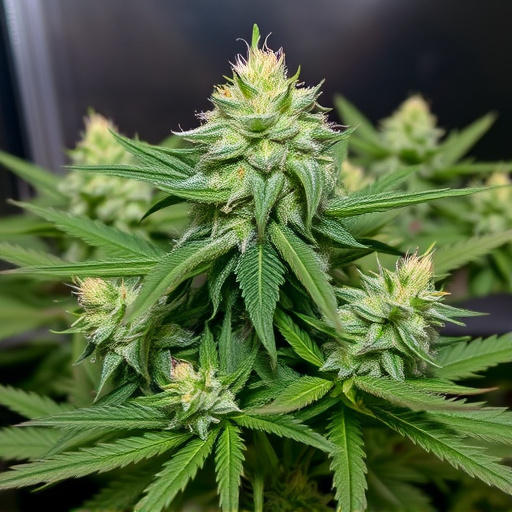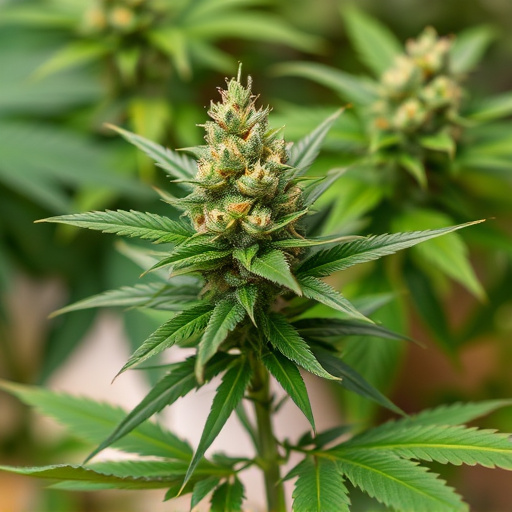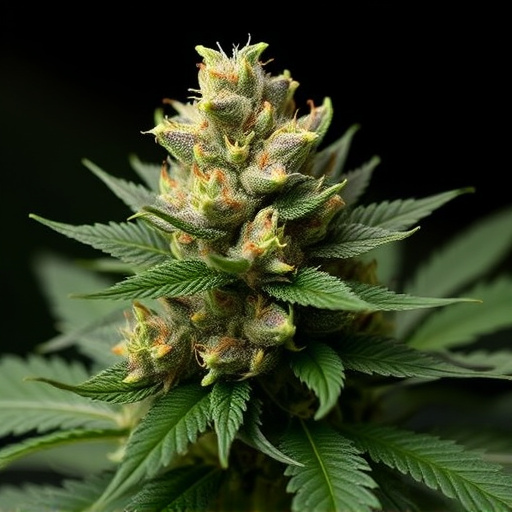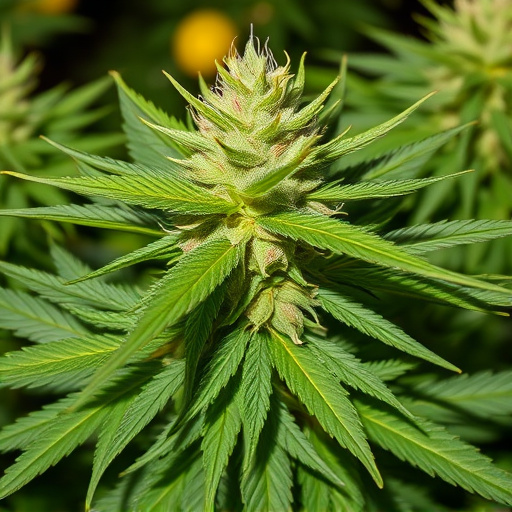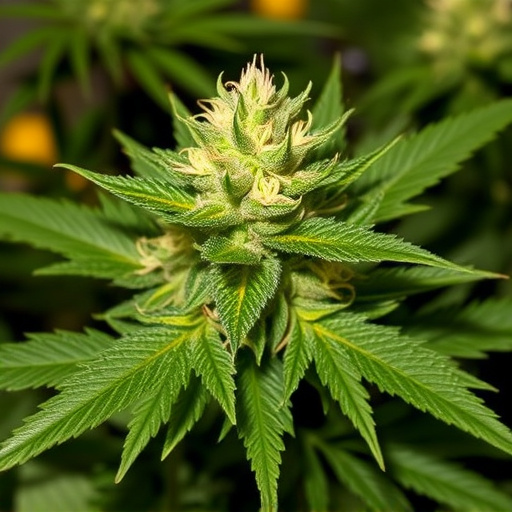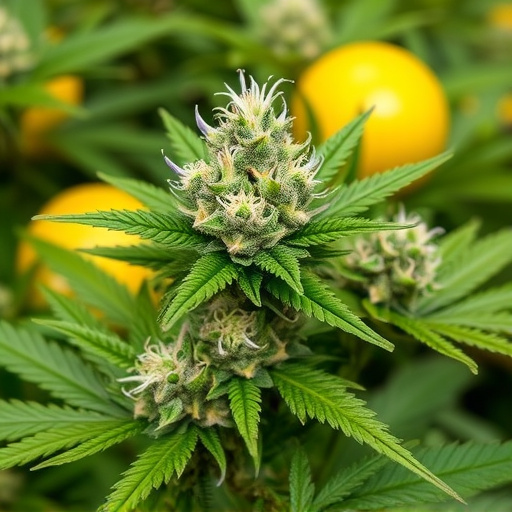Cannabis users should be aware that high THC levels in strains like Lemon Cannabis varieties can lead to adverse effects such as anxiety, paranoia, and cognitive impairment. Mitigating risks involves understanding potency, metabolism, tolerance, and setting. Choosing lower THC lemon strains, consuming in safe environments, and considering personal tolerance levels can minimize negative experiences. Lemon cannabis strains, rich in terpene limonene, offer therapeutic benefits while reducing anxiety and paranoia. Lifestyle adjustments like hydration, nutrition, exercise, mindfulness, and relaxation techniques can further reduce cannabis-related discomfort.
Cannabis has gained popularity for its therapeutic benefits, but it’s not without potential drawbacks. This article explores practical strategies to navigate and reduce negative cannabis effects, focusing on common issues like anxiety, paranoia, and cognitive impairment. We delve into the science behind these reactions and uncover the role of specific strains, with a particular emphasis on lemon cannabis strains known for their calming properties. By understanding these factors, users can make informed choices to manage discomfort and enhance their overall cannabis experience.
- Understanding Negative Effects of Cannabis: Common Issues and Their Causes
- The Role of Lemon Cannabis Strains in Mitigating Unfavorable Reactions
- Practical Strategies to Minimize and Manage Discomfort from Cannabis Consumption
Understanding Negative Effects of Cannabis: Common Issues and Their Causes
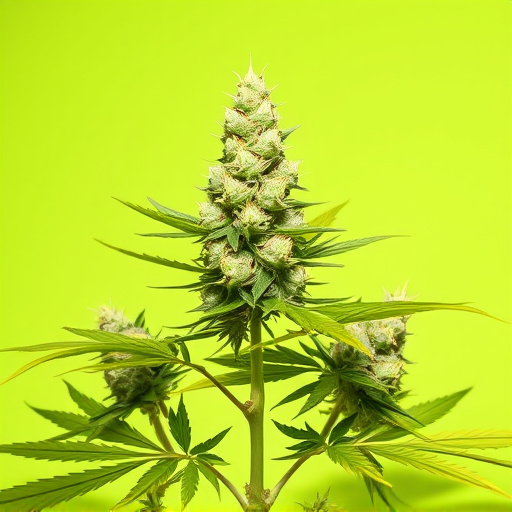
Cannabis, while known for its therapeutic benefits, can also produce adverse effects, especially when consumed irresponsibly or by individuals who are particularly susceptible. Understanding these negative impacts is crucial for users looking to mitigate potential risks. Common issues include anxiety, paranoia, and cognitive impairment, often referred to as a “dazzle” or “brain fog.” These effects are primarily linked to the high levels of THC (tetrahydrocannabinol), the primary psychoactive compound in cannabis. High-THC strains, such as those with Lemon Cannabis varieties, can exacerbate these issues for inexperienced users or those with pre-existing mental health conditions.
The causes of negative effects are multifaceted. They include the overall potency and composition of the cannabis used, individual differences in metabolism and tolerance, and the setting in which it is consumed. For example, consuming high-THC strains in a stressful or unfamiliar environment can amplify feelings of anxiety or disorientation. Recognizing these factors enables users to make informed choices, such as selecting lower THC content strains like some Lemon Cannabis varieties, ensuring consumption in safe, comfortable settings, and being mindful of personal tolerance levels.
The Role of Lemon Cannabis Strains in Mitigating Unfavorable Reactions
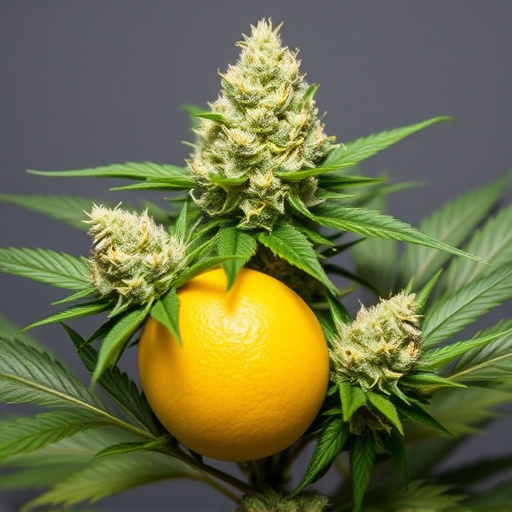
Lemon cannabis strains have gained popularity among users looking for a more pleasant and less intense experience. These strains, known for their bright, citrusy aroma and flavor, offer a unique way to mitigate unfavorable reactions to cannabis. The key lies in their chemical composition, particularly the presence of terpene profiles that can interact with the body’s endocannabinoid system differently than traditional strains.
Citrus terpenes like limonene, which is prominent in lemon cannabis strains, are known for their uplifting and calming effects. Research suggests that these compounds can help reduce anxiety and paranoia, common side effects associated with cannabis consumption. By selecting a lemon strain, users may be able to enjoy the therapeutic benefits of cannabis while minimizing the negative reactions that can sometimes occur with other varieties.
Practical Strategies to Minimize and Manage Discomfort from Cannabis Consumption

Many individuals turn to cannabis for its therapeutic benefits, but it’s not without potential side effects that can be unsettling. Discomfort, ranging from mild to moderate, is experienced by some users, prompting a need for practical strategies to minimize and manage these effects. One effective approach involves selecting specific cannabis strains known for their soothing properties, such as lemon cannabis strains. These varieties often contain higher levels of the compound limonene, renowned for its calming and anti-inflammatory effects.
Additionally, implementing lifestyle adjustments can further mitigate discomfort. Staying hydrated, maintaining a balanced diet, and incorporating regular physical activity can collectively enhance overall well-being, thereby reducing the intensity of cannabis-related side effects. Mindful breathing exercises and progressive muscle relaxation techniques have also proven beneficial in managing discomfort, allowing users to enjoy the benefits of cannabis while keeping adverse reactions at bay.
In conclusion, while cannabis offers various benefits, understanding its potential negative effects is crucial. By recognizing common issues like anxiety, paranoia, and cognitive impairment, individuals can take proactive measures. Leveraging the power of lemon cannabis strains known for their soothing properties is an effective strategy to mitigate these reactions. Additionally, adopting practical strategies such as controlling dosage and setting a comfortable environment can significantly minimize discomfort. Armed with this knowledge, users can enjoy cannabis more safely and comfortably.
